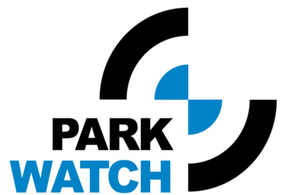Park Watch: the first organisation awarded SCC certification for ANPR cameras
This case study looks at Park Watch’s journey through the Surveillance Camera Commissioner’s certification process.

Park Watch logo.
Certification enables organisations who are operating surveillance camera systems overtly in public places, to clearly demonstrate that they comply with the Surveillance Camera Code of Practice (PDF, 518 KB) (the code) and its 12 guiding principles. If the principles are followed it will ensure that those systems are only operated proportionately, transparently and effectively. For relevant authorities (local authorities and police forces) this is particularly important, as they must show due regard to the code. For other organisations, such as the British Parking Association and its approved operators, following the code is voluntary.
Director of Park Watch, Adrian Powell, said:
Once the British Parking Association requested its approved operators sign up to the guidelines of the Surveillance Camera Code of practice, it was decided by the Board of Directors at Park Watch that we would prefer to follow the extensive audit process through to full certification. At a time when the parking industry comes under extensive scrutiny of its standards, achieving this accreditation provides confidence to both our customers and staff who benefit from the extensive investment we have made into camera technology across our business.
The process
The full certification process involves completing and submitting the self assessment tool to one of the certification bodies and having other relevant documents available for assessment. The certification body will then contact you to arrange a date for a full audit of your system. An auditor will visit your organisation’s control room to audit the system, cameras and procedures, working with a check list against the 12 guiding principles in the code. As long as you do not have any serious non-compliance issues the auditor will produce a report for the Commissioner recommending full certification.
Adrian explained:
The certification meant several weeks of pre-audit preparation, followed by a two-day office and site inspection, involving members of head office staff and site-based operatives.
The experience
Park Watch were audited and successfully achieved full certification against their use of CCTV, body worn video and Automatic Number Plate Recognition (ANPR). They are the first organisation to have its use of ANPR subject to assessment under the code.
Adrian continued:
All our staff that took part felt the process had been ‘excellent’. ‘All our site-based and mobile patrol staff are issued with body-worn cameras, supplying them with a visual deterrent in the sometimes difficult situations that they face. They now appreciate the requirement for a full understanding of the operating procedures and daily checks required when using this important equipment.
The achievement
Full certification lasts for 5 years, subject to an annual review of the system. Any organisation that is recommended for, and successfully achieves certification, will be awarded a certificate of compliance from the Commissioner and will be able to make use of the Commissioner’s certification mark on their website and other communications to indicate they comply with the code.
Adrian said:
We are pleased to have achieved the Surveillance Camera Commissioner certification mark for the confidence it now gives our existing and new customers and staff that they are dealing with a professional organisation that takes pride in the quality of service it gives.
Visit the commissioner’s certification page to find out how you can have your scheme certified against the Surveillance Camera Code of Practice (PDF, 518 KB).